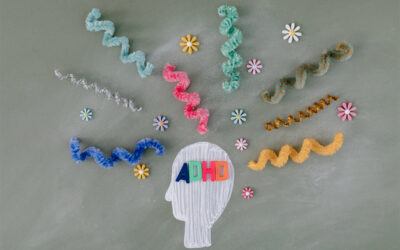Gifted and Advanced Learner Evaluation in Nova Scotia
Unlock Your Student’s Full Potential with a Comprehensive Gifted and Advanced Learner Assessment
Is your child or teen bored, disengaged, or not being appropriately challenged academically at school?
Gifted and advanced learners can sometimes feel like school is a waste of time because the work is too easy. As a result, some only do the bare minimum to get by, leaving these talented students underachieving in the classroom and not reaching their full potential.
Our assessment experts offer comprehensive gifted evaluations that identify your child’s advanced abilities and provide personalized recommendations to support their learning. So they’re engaged and excited again.

You know your child or teen is bright. So why aren’t they more excited about school?
Your child or teen may always have excelled in certain areas like academics, creativity, leadership, or the arts.
And when your child gets curious about something, they may dig in deep. Learning everything they can until they feel satisfied.
Unfortunately, sometimes schools can’t provide the right challenges and experiences to nurture your student’s unique gifts and curiosity.
As a result, your child may get bored or frustrated. This puts your child at risk of disengaging academically since their minimal effort may be enough to get by quite well in a traditional classroom.
Discover your gifted learner’s advanced areas so they can achieve their full potential.
When your student is appropriately supported and engaged, they can thrive.
But, not every gifted or advanced learner excels in the same areas. So clarifying the areas or skills they may need more enrichment or accelerated learning opportunities is important.
What are some common characteristics of giftedness?
Intense Curiosity: They strongly desire to explore, question, and understand the world, often through deep or probing questions.
Highly Creative and Innovative: Gifted students often can think outside the box, generate original ideas, and approach problems from new perspectives.
Advanced Cognitive Abilities: Gifted students may display above-average problem-solving skills, vocabulary, and comprehension of complex concepts.
Intuitive Leadership Skills: They often are able to lead and inspire peers naturally. They may take the initiative in group settings or projects.
Exceptional Memory and Retention: Gifted students often can recall information, facts, and details easily, especially in areas and topics of interest to them.
High Sensitivity: They often are strongly aware of and respond to emotional, social, or ethical issues and injustices.
Our gifted assessment can help support your child’s learning so they thrive.
At North Shore Psychological Services, your student will receive an evaluation tailored to their unique situation.
Our gifted and advanced learner assessment will:
Identify your child’s cognitive strengths, talents, and areas for growth
Provide comprehensive, tailored recommendations that support your child’s academic and emotional development
You’ll also receive a detailed report, which can help if you seek educational acceleration or enrichment opportunities at your child or teen’s school.
Our assessment experts can give you the insights and support your child or teen needs.
Our experts are licensed psychologists trained in assessment, learning, and giftedness. We understand how to nurture and support advanced learners. So your child or teen feels understood and valued during the evaluation.
Our goal is to empower gifted students and their families by providing the information, tools, and strategies you need to unlock their full potential.

Reinvigorate your student with a gifted and advanced learner assessment.
Learn what your child or teen’s cognitive and learning strengths are so they can be appropriately challenged at school and feel excited about learning again. Contact us to schedule an appointment or if you have additional questions.
Articles Related to Giftedness and Learning
Learn more about giftedness and how you can support your student with resources on our blog.
What are the benefits of a learning, ADHD, or behaviour evaluation for my child?
As a parent, you do everything you can to support your child, including their learning. Yet, when a teacher or the school suggests your child get “evaluated,” it can lead to uncertainties and questions. Many parents are left wondering: How will this really help? Will...
Psychological, ADHD, and Learning Assessments: What happens after your child’s testing?
Psychoeducational evaluations help you, your child, and the school better understand their learning style, emotional needs, and behavioural functioning — so they can get the right support to thrive. There are many benefits of an evaluation for a child or teen. But how...
ADHD Assessment vs Screening Tools: What Your Child Needs
When there’s a problem, it’s natural to want to solve it as quickly as possible. So if your child’s school suggests a screen for attention deficit hyperactivity disorder (ADHD), you may first seek help from your child’s pediatrician or family doctor. An ADHD screening...
Frequently Asked Questions
Do I need a professional referral for giftedness testing?
Your child or teen’s pediatrician, school, or mental health provider may refer your child. However, a professional referral isn’t necessary unless required by your insurance provider.
How much does a giftedness evaluation cost?
Giftedness assessments vary by purpose and service providers. However, typically, a giftedness evaluation for a school-aged child is typically between $3150- $3,375.
Each evaluation typically involves 4 to 6 hours of direct assessment time with the client and then additional time for scoring, interpretation, and report writing by the psychologist. The whole process takes approximately 15 hours. Please call for more information about fees for various assessment services.
How do I explain the giftedness assessment to my child?
Many children and teens find the process interesting. That said, we want your child to be motivated and relaxed on the assessment day. To help prepare your child, you can:
- Listen to their concerns
- Avoid using the word “test,” instead consider using “activities”
- Let them know that the purpose is to help them better understand themselves and their cognitive strengths
- Normalize the experience by reassuring them that other children participate in evaluations, too
The psychologist will also explain the assessment, including addressing any concerns.



